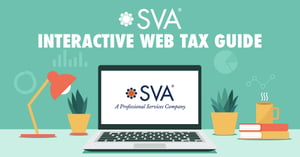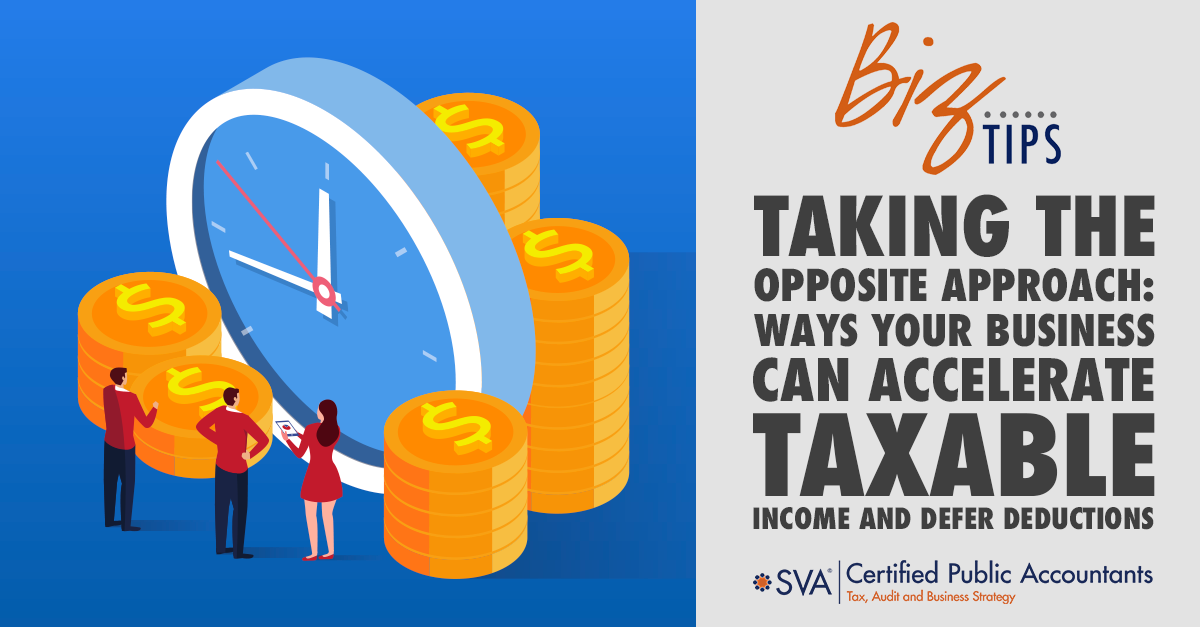Typically, businesses want to delay the recognition of taxable income into future years and accelerate deductions into the current year. But when is it prudent to do the opposite? And why would you want to?
One reason might be tax law changes that raise tax rates. There have been discussions in Washington about raising the corporate federal income tax rate from its current flat 21%. Another reason may be that you expect your non-corporate pass-through entity business to pay taxes at higher rates in the future because the pass-through income will be taxed on your personal return.
There have also been discussions in Washington about raising individual federal income tax rates.
If you believe your business income could be subject to tax rate increases, you might want to accelerate income recognition into the current tax year to benefit from the current lower tax rates. At the same time, you may want to postpone deductions into a later tax year, when rates are higher, and when the deductions will do more tax-saving good.
To Accelerate Income:
Consider these options if you want to accelerate revenue recognition into the current tax year:
- Sell appreciated assets that have capital gains in the current year, rather than waiting until a later year.
- Review the company’s list of depreciable assets to determine if any fully depreciated assets are in need of replacement. If fully depreciated assets are sold, taxable gains will be triggered in the year of sale.
- For installment sales of appreciated assets, elect out of installment sale treatment to recognize gain in the year of sale.
- Instead of using a tax-deferred like-kind Section 1031 exchange, sell real property in a taxable transaction.
- Consider converting your S corporation into a partnership or LLC treated as a partnership for tax purposes. That will trigger gains from the company’s appreciated assets because the conversion is treated as a taxable liquidation of the S corp. The partnership will have an increased tax basis in the assets.
- For a construction company, do you have long-term construction contracts previously exempt from the percentage-of-completion method of accounting for long-term contracts? Consider using the percentage-of-completion method to recognize income sooner as compared to the completed contract method, which defers recognition of income until the long-term construction is completed.
To Defer Deductions:
Consider the following actions to postpone deductions into a higher-rate tax year, which will maximize their value:
- Delay purchasing capital equipment and fixed assets, which would give rise to depreciation deductions.
- Forego claiming big first-year Section 179 deductions or bonus depreciation deductions on new depreciable assets and instead depreciate the assets over a number of years.
- Determine whether professional fees and employee salaries associated with a long-term project could be capitalized, which would spread out the costs over time and push the related deductions forward into a higher rate tax year.
- Purchase bonds at a discount this year to increase interest income in future years.
- If allowed, put off inventory shrinkage or other write-downs until a year with a higher tax rate.
- Delay charitable contributions into a year with a higher tax rate.
- If allowed, delay accounts receivable charge-offs to a year with a higher rate.
- Delay payment of liabilities where the related deduction is based on when the amount is paid.

Contact us to discuss the best tax planning actions in light of your business’s unique tax situation.
© 2022

